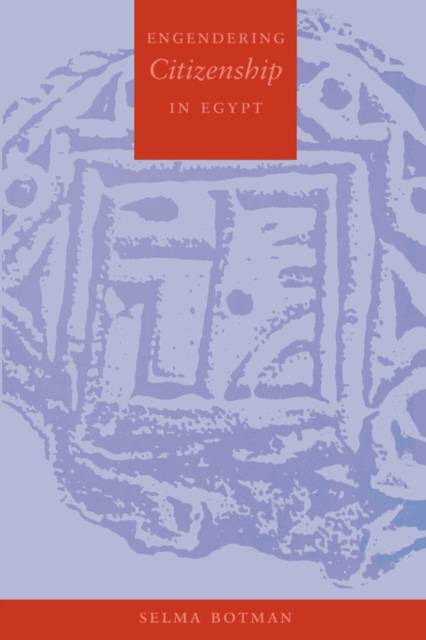
- Retrait gratuit dans votre magasin Club
- 7.000.000 titres dans notre catalogue
- Payer en toute sécurité
- Toujours un magasin près de chez vous
- Retrait gratuit dans votre magasin Club
- 7.000.0000 titres dans notre catalogue
- Payer en toute sécurité
- Toujours un magasin près de chez vous
Description
This book explores the concept of citizenship in Egypt and identifies the forces that have institutionally controlled women since the turn of the twentieth century. How is citizenship defined in Egypt and by whom? Selma Botman seeks to understand how political culture in Egypt has developed, how women have asserted themselves in public life, and how they have been limited and sometimes excluded from the political process. Botman demonstrates that women's social inferiority derives from law and custom, but points out that slow industrialization contributes to inequality in the workplace. She considers three areas of interaction in Egypt: the social organization of power, the ideological and institutional means of controlling women sexually, and the sexual division of labor. These topics highlight the complexity and interdependence of men's and women's activities and offer insight into the nature of political organization, the sources of political power, and the implications of hierarchical domination. In this decade-by-decade survey beginning with Egypt's independence from British rule, Botman shows how women's identity was constrained by social and political patriarchal structures. Even during Egypt's period of nation-building, when women won the right to vote, the responsibilities of housekeeping and child-rearing were still the strict province of women. Tracing an entrenched system of male hegemony-in the household and in the state-this study illustrates the changing yet ever restricted role of women in Egyptian society. Up to the present rise of Islamic fundamentalism, where gender inequality continues, Botman looks to the movement for Egyptian democratization as the best hope for gender equality in Egypt.
Spécifications
Parties prenantes
- Auteur(s) :
- Editeur:
Contenu
- Nombre de pages :
- 176
- Langue:
- Anglais
- Collection :
Caractéristiques
- EAN:
- 9780231112994
- Date de parution :
- 11-01-99
- Format:
- Livre broché
- Format numérique:
- Trade paperback (VS)
- Dimensions :
- 152 mm x 227 mm
- Poids :
- 222 g

Les avis
Nous publions uniquement les avis qui respectent les conditions requises. Consultez nos conditions pour les avis.






